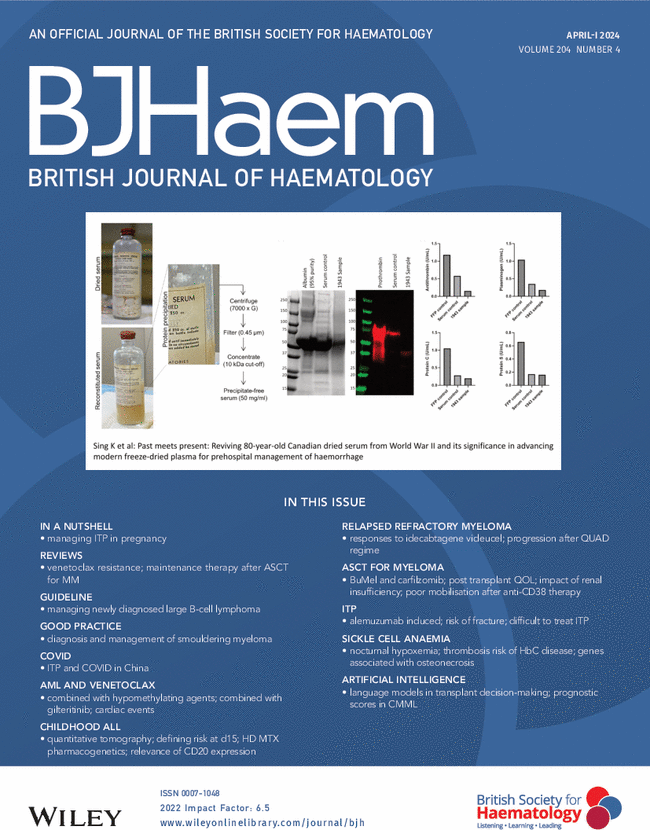Course of immune thrombocytopenia according to the site of platelet destruction identified by indium-111 platelet scintigraphy
Abstract
In primary immune thrombocytopenia (ITP), predictors of disease evolution and treatment response are needed. Data based on the site of platelet destruction are scarce. We performed a retrospective single-centre study of adult patients with primary ITP undergoing at least one Indium-111 platelet scintigraphy (IPS) between 2009 and 2018. Thirty-three patients had isolated hepatic platelet destruction (H-group), and 97 isolated splenic destruction (S-group). Median age at diagnosis (p < 0.001), proportion of associated cardiovascular (p < 0.001), organ-specific autoimmune diseases (p = 0.02), dependence on steroids (p = 0.003) and failure to rituximab (p = 0.01) were higher and relapse more frequent (p = 0.03) in H-group compared to non-splenectomized patients in S-group. Splenectomy was only performed in patients from S-group (as patients with hepatic sequestration are not splenectomized in our centre): 79% were in relapse-free remission at the end of a median 3.4-year post-IPS follow-up, 16% relapsed. In multivariate analyses, only a history of organ-specific autoimmune or inflammatory disease was significantly associated with hepatic sequestration (OR = 4.3, 95% CI = 1.2–15, p = 0.02). Patients with isolated hepatic sequestration were older, had more cardiovascular events and organ-specific autoimmune diseases, greater dependence on steroids, more relapses and a decreased response rate to rituximab suggesting an increased refractoriness to immunomodulatory therapies. Patients with isolated splenic sequestration responded well to splenectomy.


 求助内容:
求助内容: 应助结果提醒方式:
应助结果提醒方式:


